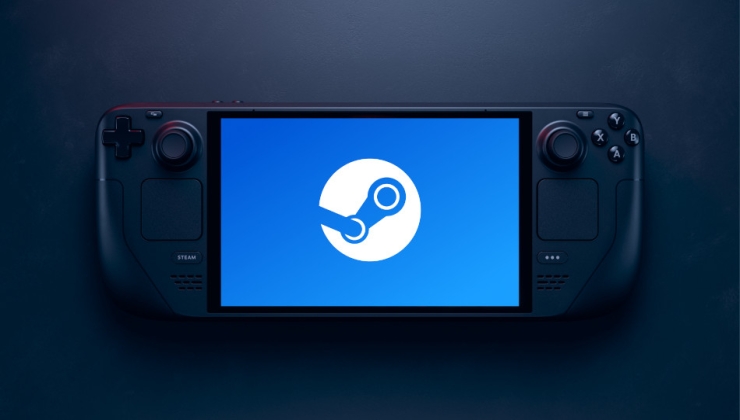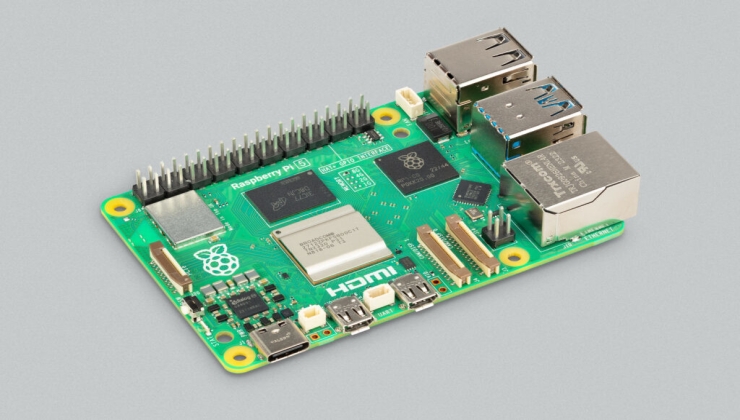I still see so much confusion and outright misinformation being spread about why a lot of Linux games perform worse than Windows, so here's a few real reasons.
Note: This is an editorial and tagged as such, please remember what that means. The way I think about things will likely be different to you.
Drivers
Drivers on Windows are tweaked rather often for specific games. You often see a "Game Ready" (or whatever term they use now) driver from Nvidia and AMD where they often state "increased performance in x game by x%".
This happens for most major game releases on Windows. Nvidia and AMD have teams of people to specifically tweak the drivers for games on Windows. Looking at Nvidia specifically, in the last three months they have released six new drivers to improve performance in specific games.

Update: Image above added to help show my point.
This just doesn't really happen on Linux, it has happened in the past, but it seems it's a rare occurrence on Linux. It seems a lot of people overlook this fact too. This is easily where a chunk of the performance difference comes from for some of the bigger games.
On Windows, drivers specifically state when they improve performance in certain games, I highly doubt AMD/Nvidia would release a driver on Linux that improved performance in a Linux game without saying anything.
Here's a specific example [see here] (one of many I could easily pull up) for Mad Max. On Windows, Nvidia specifically released a driver with "performance optimisations, Game Ready tweaks, and a SLI profile" for the DirectX version, we don't see things like that on Linux.
Update: I'm not claiming this is a major source of the difference, but it could account for some differences. The other issues below are likely the bigger issues.
Ports, not versions
A small part of the blame also lies in games that are ported from Windows to Linux after the original release. Why? As these games generally use some form of translation layer that translates DirectX calls to OpenGL, as opposed to rewriting the game engine for better OpenGL support. This can of course have an overhead to it. Not always, but a lot of the time it will.
Why do they use these layers? When thinking in business terms it's quite simple and comes down to two things: Time and Money. It would likely take too long to rewrite an entire game engine to make much better use of another API. We would end up seeing a lot less ports.
Think about these major games and how they were originally developed. They would have had thousands (if not millions) invested into them to make them perform on Windows. Where as Linux has no such investment for the games.
So, it's not down to laziness as I repeatedly see people say, but it's just business. Some of you may not like this, but that's the way it is for a small platform. The only way this is likely to change in future is if our platform grows and more developers take notice, but we won't grow much, if all people do is complain about the games we already have.
This doesn't apply to every Linux game of course, but it is a major reason from the bigger porters.
OpenGL
OpenGL itself can often be the problem. Many developers [like this one, and this one], some high profile too, have noted their extreme frustrations with this graphics API. I've personally spoken to a lot of developers over the years, some small, some big, and their thoughts about OpenGL are never very nice.
OpenGL doesn't really do multithreading. Nvidia do have their "__GL_THREADED_OPTIMIZATIONS" option but the results with that vary from game to game and GPU to GPU, it can destroy performance in some games. Remember the initial Linux release of The Witcher 2? VP tried to do OpenGL multithreading similar to DirectX [see here for their explanation], and the performance was terrible.
Where as DirectX does multithreading rather nicely. This is also something people repeatedly either forget, or ignore when it comes to Linux port performance.
The problems are many, from poor documentation to a lack of decent debuggers that can make life hell for developers using it.
Thankfully, Vulkan the new API will hopefully help to close the performance gap, but it won't be a silver bullet. Vulkan seems to be developed far more in the open than OpenGL ever was and there's actual excitement for it from developers. It was also designed with multithreading in mind [see this video]. We do still have the two other previously mentioned issues though.
So, before people go complaining there's a 20% (or whatever) difference in a Linux game, they need to ask themselves: do they want more Linux ports to happen, or do they want only 2 or 3 a year? Those 2 or 3 somehow hit 100% parity with Windows, but then they aren't financially rewarding for the developer and for Linux to continue to remain in Linux gaming obscurity until the end of time?
I don't particularly like it when ports don't perform amazingly well, but the point here is the experience you have. Is your experience with a Linux port good? If the answer is yes, does the difference between Windows and Linux really matter? Not really. Would you even know there was a difference unless you stared at that FPS counter or directly compared it to the Windows version? If the answer is a no, then again, does it really matter if there is a difference? Not really.
Note: This is an editorial and tagged as such, please remember what that means. The way I think about things will likely be different to you.
Drivers
Drivers on Windows are tweaked rather often for specific games. You often see a "Game Ready" (or whatever term they use now) driver from Nvidia and AMD where they often state "increased performance in x game by x%".
This happens for most major game releases on Windows. Nvidia and AMD have teams of people to specifically tweak the drivers for games on Windows. Looking at Nvidia specifically, in the last three months they have released six new drivers to improve performance in specific games.

Update: Image above added to help show my point.
This just doesn't really happen on Linux, it has happened in the past, but it seems it's a rare occurrence on Linux. It seems a lot of people overlook this fact too. This is easily where a chunk of the performance difference comes from for some of the bigger games.
On Windows, drivers specifically state when they improve performance in certain games, I highly doubt AMD/Nvidia would release a driver on Linux that improved performance in a Linux game without saying anything.
Here's a specific example [see here] (one of many I could easily pull up) for Mad Max. On Windows, Nvidia specifically released a driver with "performance optimisations, Game Ready tweaks, and a SLI profile" for the DirectX version, we don't see things like that on Linux.
Update: I'm not claiming this is a major source of the difference, but it could account for some differences. The other issues below are likely the bigger issues.
Ports, not versions
A small part of the blame also lies in games that are ported from Windows to Linux after the original release. Why? As these games generally use some form of translation layer that translates DirectX calls to OpenGL, as opposed to rewriting the game engine for better OpenGL support. This can of course have an overhead to it. Not always, but a lot of the time it will.
Why do they use these layers? When thinking in business terms it's quite simple and comes down to two things: Time and Money. It would likely take too long to rewrite an entire game engine to make much better use of another API. We would end up seeing a lot less ports.
Think about these major games and how they were originally developed. They would have had thousands (if not millions) invested into them to make them perform on Windows. Where as Linux has no such investment for the games.
So, it's not down to laziness as I repeatedly see people say, but it's just business. Some of you may not like this, but that's the way it is for a small platform. The only way this is likely to change in future is if our platform grows and more developers take notice, but we won't grow much, if all people do is complain about the games we already have.
This doesn't apply to every Linux game of course, but it is a major reason from the bigger porters.
OpenGL
OpenGL itself can often be the problem. Many developers [like this one, and this one], some high profile too, have noted their extreme frustrations with this graphics API. I've personally spoken to a lot of developers over the years, some small, some big, and their thoughts about OpenGL are never very nice.
OpenGL doesn't really do multithreading. Nvidia do have their "__GL_THREADED_OPTIMIZATIONS" option but the results with that vary from game to game and GPU to GPU, it can destroy performance in some games. Remember the initial Linux release of The Witcher 2? VP tried to do OpenGL multithreading similar to DirectX [see here for their explanation], and the performance was terrible.
Where as DirectX does multithreading rather nicely. This is also something people repeatedly either forget, or ignore when it comes to Linux port performance.
The problems are many, from poor documentation to a lack of decent debuggers that can make life hell for developers using it.
Thankfully, Vulkan the new API will hopefully help to close the performance gap, but it won't be a silver bullet. Vulkan seems to be developed far more in the open than OpenGL ever was and there's actual excitement for it from developers. It was also designed with multithreading in mind [see this video]. We do still have the two other previously mentioned issues though.
So, before people go complaining there's a 20% (or whatever) difference in a Linux game, they need to ask themselves: do they want more Linux ports to happen, or do they want only 2 or 3 a year? Those 2 or 3 somehow hit 100% parity with Windows, but then they aren't financially rewarding for the developer and for Linux to continue to remain in Linux gaming obscurity until the end of time?
I don't particularly like it when ports don't perform amazingly well, but the point here is the experience you have. Is your experience with a Linux port good? If the answer is yes, does the difference between Windows and Linux really matter? Not really. Would you even know there was a difference unless you stared at that FPS counter or directly compared it to the Windows version? If the answer is a no, then again, does it really matter if there is a difference? Not really.
Some you may have missed, popular articles from the last month:
Quoting: seguleh...Some of my coworkers have Macs at home, and they complains they have too weak Macs for gaming, but they don't want to buy Windows PC (they just hate Windows :)). ...In fact the so called "Macs" you can buy nowerdays are "Windows" Pc (x86/Amd64 Pc) with an Apple OS, the true Mac already died a long time ago (own CPU, etc.).
Last edited by 7IJ7o on 1 November 2016 at 2:30 pm UTC
0 Likes
Off topic, but this I need to write: thank you for your work @liamdawe and @ everybody else, please keep in mind to like articles on gamingonlinux, too (not only the comments). Some people could feel a little bit sad if their articles are "unliked".
I have felt myself a little bit sad to see only a few likes on my posts on a social media platform (I mean not gamingonlinux) but got more than 2000 followers (yeah it is hard to click on like and help to support me to reach more people ... and not to earn any money only to ... whatever, you do not need to know :D)
Like articles of liamdawe and the others, if you like the articles to show some kind of support, please. (I just seen I have forgotten myself to do this here, to click on the little heart)
I have felt myself a little bit sad to see only a few likes on my posts on a social media platform (I mean not gamingonlinux) but got more than 2000 followers (yeah it is hard to click on like and help to support me to reach more people ... and not to earn any money only to ... whatever, you do not need to know :D)
Like articles of liamdawe and the others, if you like the articles to show some kind of support, please. (I just seen I have forgotten myself to do this here, to click on the little heart)
0 Likes





See more from me